Superstar R&B Artist Official Angello
Allister Amada Spoken Word Contest Winner
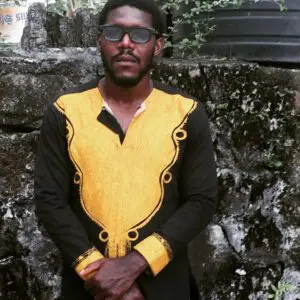
Winner
Lilian Langaigne contest winner
Jenson Mitchell aka Highroof Spirit Lead Spoken Word Piece

Ellington Nathan Purcell aka “Ello”
A must watch Spoken Word

Did You Know?
Julien Fedon was born on the island of Martinique. He was the son of a free African woman and his father Pierre Fedon was a French jeweler who traveled from Bordeaux, France, in 1749 to the island of Martinique. The family moved to Grenada in the 1750’s when the island was still under French rule. Fedon and his wife Marie Rose Cavelan settled in Belvedere Estate in Gouyave St. John’s where he owned a farm. He was also a commanding general of the French republican forces in Guadeloupe.
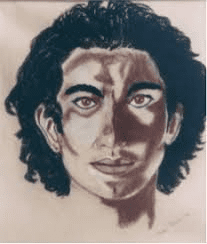
The British successfully invaded the island on 1762 during the Seven Years’ War and acquired Grenada by the Treaty of Paris in 1763. On the night of March 2nd, 1795, Julien Fédon, launched a revolution against British rule in Grenada, to abolish the Maafa (slavery). The uprising which continued until June 19, 1796 became known as the Fedon Rebellion. Under Fedon’s leadership, 14,000 of Grenada’s 28,000 bond people (enslaved persons) joined the revolutionary forces and took control of most of the Island. 7,000 of these self-liberated African Blacks would perish in the name of freedom.
Fedon began the revolt to abolish slavery, to convert bond people into citizens, and eliminate British colonial rule, returning it to the French people. He was influenced both by the French Revolution in France, the French Revolutionary leaders in Guadeloupe, and the Haitian Revolution. He stated that he intended to make Grenada a “Black Republic just like Haiti.” He had the firm intention to make of Grenada a new African republic, following the Guadeloupe model. To do this, he fought against the landlords and Euro-British bourgeois, with the help of several troops formed by around 100 freed Blacks.
The attacks were well coordinated against the cities of Grenville and Gouyave. The insurgents looted and burned houses and executed the British settlers in the streets. After returning to the mountains of Belvedere, the insurgents joined a large group of bond people who had abandoned the plantations where they labored and toiled tirelessly. In the mountains, Fedon established several fortifications to face the British attacks. By June 1796, the revolution allowed them to control the whole island except the parish of St. George, where the government was located.
Fedon brother was killed by the British and in retaliation he executed 48 British hostages including Ninian Home the Governor of Grenada. Although the revolution was eventually destroyed by the British, tensions remained high until slavery was abolished in 1834. Fedon was never captured and his whereabouts was unknown after the revolution.
Julien Fedon is considered a folk hero in Grenada and influenced the nationalist leaders and revolutionaries of the island. He is therefore considered one of Grenada’s Founding Fathers.
Theophilos Maricheau was born on November 7th,1887, to Eugenia de Souze of Lucas Street, St George’s, Grenada. He was also the son of P I Maricheau, a small black cocoa farmer who disappeared after his son’s christening at the Methodist Church in St. George’s. His mother died in 1890 and the young man was brought up by his godmother Christine the wife of Antonio Franco a Portuguese Merchant. After a brief apprenticeship as a carpenter, in 1903 Franco obtained a job for Maricheau in the printing establishment of W.G. Donovan initially to deliver newspaper. He later adopted the Anglicized spelling of his name. The young Theophilus Albert Marryshow attended St. Louis Primary Roman Catholic School, and later attended the Methodist School in St. George’s. He never attended a secondary school but remarkably given his abilities and personal efforts, this never hindered him, and was accepted as an intellectual by all who met him.
His mentor Donavon a Grenadian, of Irish descent, known as the ‘lion’, due to his red hair was the intellectual rebel of that time. He envisioned a Federation of the West Indies, which the young Teddy gravitated towards. Donavon also taught him the art of journalism. Marryshow was soon involved in the whole range of journalistic activities as well as becoming an active participant in local politics and in the Grenada Literacy and Debating Society. He became editor of the St. George’s Chronicle, and Grenada Gazette in 1908, and then managing editor of The West Indian in 1915.
Donavon did much more than teach the young Marryshow the profession of journalism and newspaper production, he constantly encouraged him in the pursuit of knowledge and always referred him to read books and papers to broaden his knowledge.
Among Marryshow’s early political successes in Grenada was the setting up of the Representative Government Association in 1918 which led in 1920 to some changes in the way members of the Legislative Council were chosen, and in 1922 to a visit by a special Commission which recommended an increase in the number of elected members. Marryshow himself was elected representative for St George’s for most of his life.
Like his close friend and counterpart Cipriani, in Trinidad, Marryshow was a campaigner for the formation of a West Indian contingent, to fight alongside Britain in World War One. This led to the Governor saying to the Prince of Wales, later King Edward VIII, on a visit to Grenada in 1920, when presenting Marryshow: “This is Mr. T. Albert Marryshow our leading journalist, He did great work in aid of the Red Cross Fund and rendered great assistance in recruiting the British West Indian Regiment.”
He participated in various activities designed to promote Federation, including the one and only meeting of the Standing Conference in 1929 in Barbados. Around this time, the Colonial Office looked favorably on a proposal to bring about limited union of the Leeward and Windward Islands, but Grenada refused to attend the 1934 conference that approved this notion so that wider political federation was temporarily deadlocked. Progress was being made on moving toward more representative government within the colonies. Marryshow visited London to lobby the Colonial Office in 1931. A new constitution for Grenada was approved in 1935, adding two more elected representatives to the Legislative Council. In 1937, Marryshow helped organize a non-violent demonstration to express solidarity with striking workers in other West Indian islands, it’s this disturbance that led to the Moyne Commission in 1938.
Theophilus Albert Marryshow, was made a Commander of the Order of the British Empire in 1943, for his services to the West Indies, and one year later he was appointed to the elitist Executive Council of Grenada. He addressed the Grenada Mutual Association in New York, which prompted the British Embassy to report: “Mr. Marryshow proved that his oratorical fire is still there, and that he is the number one statesman in the West Indies. The history of constitutional growth in the West Indies, and the birth and growth of national consciousness over the last 40 years is very largely and inseparably the history of his life and work.”
Poor health had been among the reasons Marryshow sold his newspaper in 1934. His financial status was also precarious and remained so during and after the war years. Politically these were times when he was looked on as a trustworthy leader of the colonies towards and into federation.
Towards the end of his career, the old regime in Grenada was challenged by the populist labor politics of Eric Gairy. In the first election under full adult suffrage in 1951, Marryshow retained his seat, but Gairy’s party took all but one more of the eight available.
Marryshow continued to play a role in the developments that led eventually to the Federation which was signed into law in 1956, and he was nominated to represent Grenada in the Upper House of the Federal Parliament. He was only able to serve a few months, dying on October 6, 1958.
Theophilus Albert Marryshow, after over fifty years unrelenting political agitation, saw his dream come true with the forming of the Federation in 1958, he was appointed a Senator of Federation. Due to his untiring efforts for West Indian unity, his colleagues gave him the title ‘Father of Federation’.
Marryshow died shortly after the forming of the Federation. With tributes pouring in from all over the world, Perhaps the finest is that title given to him by his peers, ‘Father of Federation’. He had been referred to in influential quarters in Britain as The Elder State-man of the West Indies.
Marryshow was made a Commander of the Order of the British Empire in 1943, for his services to the West Indies, and one year later he was appointed to the elitist Executive Council of Grenada.
Besides his arduous public roles, Marryshow lived life to the fullest. He was a lover of roses, women and music. He never married but left several children including six with Edna Gittens. His house on H.A. Blaize Street in St George’s is a tasteful expression of the best in West Indian vernacular architecture of that period. It remains in excellent condition and houses the University of the West Indies Grenada Centre.
Marryshow died on October 6th, 1958 at age 70.
The Grenada state-owned tertiary institutions, T.A Marryshow Community College, is named after him. In November 2010, the Government of Grenada named November 7th, the birthdate of Theophilus Albert Marryshow as Marryshow Day, in recognition of his contribution to Grenada and the region.
Although Mr. Marryshow was known as the Father of Federation, we observe him as one of Grenada’s founding Fathers for his contribution to Grenada and the West Indies as a whole.
Tubal Uriah “Buzz” Butler aka Supreme Chief Servant was born in St. Georges Grenada on January 27, 1897. He was a Grenadian born Spiritual Baptist preacher and labor Leader. Uriah was raised during a time when the sugar plantation was on a decline.
His father was a Blacksmith and the sexton of the St. Georges Anglican church. Free tuition was given to the young Butler to attend that school. After he completed his primary education, his family was unable to provide the him a Secondary education. He then was unable to find work or means to further his education.
World War I was on the horizon so at the age of 17 Butler told military officials that he was 20 years old. During World War I, he served in the British West Indian Regiment, under Captain Arthur Cipriani. Like most of his cohorts, he idolized his captain.
Returning from military service at the end of the war, he became active in political pressure groups and workers unions, establishing the Grenada Representative Government Movement, calling for universal adult franchise and the Grenada Union of Returned Soldiers, seeking benefits and employment. Returning soldiers were disappointed with the lack of employment and subsistence living standards. In 1920 St. Georges was almost destroyed by fire. Many believed that it was the result of returning soldiers.
Butler became associated with Marcus Garvey with his fiery brand preaching and his Universal Negro Improvement Association (UNIA). The Grenadian authorities blamed disturbances on Marcus teachings. From November 1927 through August 1940 there was a UNIA chapter located in Grenada. “Man Rise to Greatness” was a fiery and famous speech that was delivered by Marcus Garvey in Grenada which was believed to have influenced the young Uriah.
In 1921 at age 24, he went to Trinidad, attracted by the flourishing oil industry with its plentiful jobs and relatively high wages and was employed at the Roodal Oilfields as a pipe-fitter. He also was a preacher at the Moravian Baptist Church of Fyzabad. In Fyzabad at that time, 25% of the population was from Grenada. Uriah was injured in an industrial accident that left him permanently lame.
Butler first came to prominence in 1935 when he led a “hunger march” from the oilfields to Port of Spain. In 1936 he was expelled from the Trinidad Labor Party for his “extremist tendencies”. He then formed the British Empire Citizens’ and Workers’ Home Rule Party.
On June 19, 1937 a strike in protest of working conditions, wages, racism and exploitation began in the oilfields in southern Trinidad. Police attempted to arrest Butler as he addressed a meeting in Fyzabad. His supporters prevented the police from doing so and Charlie King, a police officer was killed.
The Labor riots of 1937 resulted in turmoil throughout the oilfields. When strikes spread to the sugar factories, the Colonial government responded by issuing an arrest warrant for Butler. Butler went into hiding and the colonial authorities were unable to locate him. He stayed in contact with the authorities through Adrian Cola Rienzi and although he was promised safe passage by the colonial authorities to testify at a commission of enquiry into the events of June 1937, he was arrested by the colonial government when he emerged to do so.
In 1936 and 1937, Butler was up and down the oil belt, rallying people to his banner. He was a magnificent, earthly, impassioned orator. His ability to arouse the masses was second to none. A charismatic leader of genuine working-class background, he was far more intimately linked to the masses than Cipriani.
He spoke in their own idiom, he articulated bread and butter issues in passionate language. Butler also had a very strong religious and Messianic streak. He believed that God had appointed him to lead the people out of the wilderness of oppression into the promise land and he often used religious metaphors in his speeches.
In one of his most famous speeches, Butler said, “After years and years of weeping and groanings, untold mysteries and complaining, prayers and petitions, the toiling masses of this colony prayed to the God of Justice and Fair Play, Freedom and Liberty, the God of their ancient and incomparably glorious African forefathers, to send them a leader.”
Butler was imprisoned from September 9th, 1937 to May 1939. With the outbreak of World War II, in September 1939, he was re-arrested and detained for the duration of the war. After release from prison he formed the Butler Home Rule Party, which later became the Butler Party. The Butler Party captured the largest block of seats in the Legislative Council, but the Governor chose to exclude Butler and instead Albert Gomes became the first Chief Minister.
In the 1956 General Elections the Butler Party only won two seats. Butler, the fiery radical, was deemed too unstable and threatening to the nation’s economic well-being by Eric Williams and the People’s National Movement. His political career was short in duration, and some believe he was eclipsed by the appearance of Eric Williams on the political scene.
In 1962, when Trinidad and Tobago became a sovereign nation, Butler’s contributions to the labor movement on behalf of the masses took on greater significance and he was recognized as a hero of the people. In 1970, the government of Trinidad and Tobago awarded him its highest honor: The Cross of Trinidad. Trinidad and Tobago Labor Day is celebrated on June 19 in commemoration of the anniversary of the famous labor revolts led by Butler in 1937.
Tubal Uriah “Buzz” Butler died on February 20, 1977 at age 80 in Fyzabad Trinidad
Uriah Butler was a National hero by the Maurice Bishop (PRG) government. Upon his precepts the ideals of the PRG trade union movements were to be built.
Herbert Augustus Blaize was a politician and leader of the Grenada National Party. When Grenada was still a British Crown Colony he served as the first Chief Minister from 1960 to 1961, and again from 1962 to 1967. He became the first Premier of the autonomous Associated State of Grenada briefly in 1967.
Herbert Blaize was born in Carriacou, one of Grenada’s smaller islands on February 26, 1918, where he was educated at the Hillsborough Government School. He received his secondary education at the Grenada Boy’s Secondary School on the main island, where he proved to be an excellent student and in 1937, his final year at GBSS, was the runner-up in the examination for the Island Scholarship awarded by the Government.
After leaving school he became a civil servant in the Treasury and Administration Department of Government until he migrated to Aruba in 1944. There he worked with the Largo Oil Transport Company as a stenographer/secretary in the office of that company. Blaize returned to Grenada in 1952.
In 1953 he formed the Grenada National Party as a rival party to the Grenada United Labor Party of Eric Gairy. Herbert Augustus Blaize made his political debut in 1954, when he contested the Carriacou & Petite Martinique constituency unsuccessfully as an independent, and first took his seat in the Legislature when he won that constituency in 1957 as a member of the Grenada National Party (GNP).
In 1959 he took over the political leadership of the GNP, he became Minister of Trade and Production from 1957 to 1959 and Chief Minister from 1960 which he then lost to Eric Gairy in 1961 and reappointed in 1962 after Gairy was dismissed for misconduct.
The GNP lost the 1961 elections and Blaize became Leader of the Opposition but after the Constitution was suspended by Britain in 1962 (following a Commission of Inquiry into the then Administration led by Eric Gairy) the GNP had an outright win in the elections of that year and he held the position of Chief Minister until 1967.
Blaize title under the new Constitution was Premier but he reverted to being Leader of the Opposition when the GNP lost the General Elections of August 1967.
The GNP lost the General Elections again in both 1972 and 1976. The party teamed up under the banner of The People’s Alliance with two other parties, the New Jewel Movement (NJM) and the United People’s Party, and following that election, Blaize relinquished leadership to Maurice Bishop of the NJM.
In 1976 Blaize center-right National Party joined forces with the left-wing New Jewel Movement led by Maurice Bishop for the elections that year, which Gairy and the GULP won. The alliance between Blaize and Bishop ended by 1979 when Bishop seized power. Blaize retired from politics and moved back to Carriacou, until after the intervention by the United States in 1983.
During the election campaign of 1984, Blaize merged his parties with several other center-right parties to form the New National Party (NNP), which took 14 of 15 seats in the election. He was sworn in on December 4th, 1984 and his Cabinet was announced 11 days later.
Blaize government advocated a strong economic and military alliance for Grenada with the United States, and other overseas investment. Blaize was often criticized for being authoritarian
In addition to being Prime Minister, Blaize became Minister of Home Affairs, Security, Information, Finance, Trade, Planning, Industrial Development and Carriacou and Petite Martinique Affairs.
Blaize last session in the House was marked by controversy within the Government resulting in defections which reduced the NNP majority to nine against an opposition of six.
At a convention in January 1989, Prime Minister Blaize lost the NNP political leadership. With growing fiction within the party, he withdrew from the NNP and with a group of members loyal to him, launched The National Party (TNP) on August 31, 1989.
At TNP’s first convention on December 17, 1989, Blaize was officially elected as the party’s Political Leader. He died two days later.
Herbert Augustus Blaize died on December 19, 1989 at 71 years of age at St. George’s, Grenada, following a long battle with prostate cancer. He was influential in the island’s independence from Great Britain and its political infrastructure.
Eric Matthew Gairy at 5 feet 7 inches, was the first Prime Minister of Grenada, serving from his country’s independence in 1974 until his overthrow in a coup by Maurice Bishop in 1979. Gairy first served as head of government in pre-independence Grenada as Chief Minister from 1961 to 1962, and as Premier from 1967 to 1974.
He was a bonafide, charismatic leader, the people’s champion who led boycotts, strikes and sit ins. Gairy was influential in raising the pay of the workers and Grenadians love him and referred to him as, “Uncle Gairy”. Although he was initially viewed as a champion of the working class, he turned into a ruthless dictator who silenced critics by dispatching his Mongoose Gang, his personal security henchmen.
Eric Matthew Gairy was born to a peasant family. He was the son of Douglas and Theresa Gairy, and was born February 18, 1922 in Dunfermline, St. Andrew’s Parish on the eastern side of the island. He attended LaFillette School and then the St. Andrews Roman Catholic Senior School. He was an acolyte at St. Andrew’s Roman Catholic church and a teacher.
He left Grenada in early 1940 to seek employment first at an American military base in Trinidad and then at an oil refinery in Aruba. After running afoul of Dutch authorities in Aruba because of his union activities, he returned to Grenada in 1949 to enter trade unionism and politics.
The following year he formed the Grenada Manual, Maritime and Intellectual Workers’ Union and later the Grenada United Labor Party (GULP). His political efforts against the planter aristocracy won him the support of the island’s poor and was deeply involved in encouraging the 1951 general strike for better working conditions. This sparked great unrest – so many buildings were set ablaze. That disturbance became known as the “red sky” days – and the British authorities had to call in military reinforcements to help regain control of the situation. Gairy was arrested for causing this disorder.
Popularly known as, “uncle” He became minister of trade and production in 1956. He was banned from political activities and lost his seat between 1957 and 1961. He then became chief minister and minister of finance later that year. Charges of petty corruption led to his dismissal in 1962, but he and the GULP came back in 1967 and won the 1967 and 1972 general election. He formed a new administration as Premier of the Associated State of Grenada and in 1974 he was elected prime minister the year the country gained their independence from Great Britain.
Gairy became the first Prime Minister of Grenada when Grenada achieved independence from Great Britain on February 7th, 1974. Gairy’s term in office coincided with civil strife. The political environment was highly charged with Gairy’s secret police, the Mongoose Gang terrorizing opponents.
In the Queen’s New Year Honors of 1977, Sir Eric was elevated to membership of the Privy Council and, later that year, in the Queen’s Birthday Honors, was made a Knight Bachelor.
On March 13, 1979, while Gairy was at the UN, the New Jewel Movement led by Maurice Bishop launched an armed revolution and overthrew his government. Bishop suspended the constitution, and the New Jewel Movement ruled the country by decree until 1983. Anti-Gairy activity was carried out in the United States in support of the revolution to overthrow Gairy including activists in San Antonio, Texas.
Gairy stayed in exile in the United States and reportedly resided in an apartment in San Diego until 1983, when the United States, backed by some Caribbean allies notably Eugenia Charles, Prime Minister of Dominica invaded to topple a coup originally led by Bernard Coard and his thugs most notable one who was known to be illiterate and extremely leftist called Hudson Austin which had overthrown and killed Prime Minister Maurice Bishop along with certain members of his government.
Gairy then returned to Grenada and campaigned in the elections of 1984, claiming to be a “changed man”. However, his party lost the elections, winning 36% of the popular vote but only a single seat in the House of Representatives. Attempts by Gairy and his party to return to power in 1990 and 1995 were also unsuccessful.
He died in Grand Anse on August 23, 1997(1997-08-23) at age 75.
Paul Godwin Scoon, was Governor-General of Grenada from 1978 to 1992. His tenure is notable for its hectic events related to the rise and fall of the People’s Revolutionary Government, as well as his personal involvement and support of the Invasion of Grenada.
Paul Scoon the son of a butcher was born on July 4th, 1935 in Gouyave, a town on the west coast of Grenada known for its fishery and night life activities. He attended St. John’s Anglican School and then the Grenada Boys’ Secondary School (GBSS). Scoon then received an external degree from the University of London before going on to study at the University of Leeds, England, and attaining an M.Ed. at the University of Toronto in Toronto, Canada.
He returned to Grenada to teach at the Grenada Boys’ Secondary School where he liked to quote Shakespeare and Chaucer in his distinct commanding voice. Following a career rising from Chief Education Officer to finally becoming Secretary to the Cabinet, the head of Grenada’s Civil Service. He was awarded the OBE in 1970 and in 1973 he returned to London to fill the post of Deputy Director of the Commonwealth Foundation.
Sir Paul Scoon served as Grenada’s Governor General during a difficult period of tremendous turmoil in the country. On October 4th, 1978, Scoon was appointed Governor General of Grenada by Queen Elizabeth II, on the advice of Prime Minister Sir Eric Gairy as the island’s second Governor General. He found himself, within six months, faced with the reality of the New Jewel Movement led by Maurice Bishop and his cohorts Bernard Coard and Hudson Austin with the overthrew of the Gairy’s government.
Initially arrested by the militants, Scoon was later released and he and Bishop managed to maintain a semi-normal working relationship, even though Scoon strongly opposed Bishop’s Provisional Revolutionary Government. Bishop agreed to retain Grenada’s status as a constitutional monarchy and the position of governor general to represent the monarch, Queen Elizabeth II.
Scoon was happy to remain in office, providing a degree of stability in the situation, despite irritation at the curtailment of some of his privileges. He played tennis with Bishop and maintained his reputation for discretion.
When the invasion occurred, one of the first steps was to free Scoon, a task assigned to the United States Navy SEALs. A three-day siege was launched against the Governor-General’s residence and Scoon and his family were eventually liberated. The American and Caribbean governments quickly reaffirmed Scoon as the only legitimate representative of the Queen and hence the only lawful authority in Grenada.
Soon after the invasion began, the United States released a letter from Scoon, dated October 24, in which he requested armed intervention. It was displayed as evidence that the invasion was not a unilateral American act, but a regional police action.
After the invasion, though, Scoon was anxious for American forces to leave as soon as possible, stating two weeks after the intervention that he “cannot see people from abroad coming in to change our minds or souls and the whole heart of a society” and that “it is important that within the shortest possible time that we should live and work in a situation where security support takes the form of a police operation that will increasingly come under the command of a Grenadian or West Indian commissioner of police.”
As per Commonwealth constitutional practice, Scoon became interim head of government and appointed an advisory council, which in turn named Nicholas Brathwaite as chairman and interim prime minister until post-invasion elections were held in 1984. Scoon retired from his post in 1992.
Scoon published a book entitled Survival for Service that provided a personal account of his experiences as governor-general. In it, he denied writing the 24 October letter, saying it had been delivered to him on 27 October, after he was rescued. He did, however, confirm that he had asked for American and Caribbean intervention. The accuracy of some of this book has been questioned by Richard Hartand Jeremy Taylor.
In 2004, Mr. Scoon said he considered President Reagan to have been one of the greatest American presidents and a great world leader. “I think his men really saved us,” he said.
Scoon died on September 2nd, 2013 at the age of 78. Even though a cause of his death was not announced, he had been a known diabetic for many years. He was married to Esmai McNeilly. His peers considered him a “Statesman”.
FOOTNOTES:
April Expo At Grenada
Grenada hosted thousands of visitors during a four-week CARIFTA Expo ’69 which was opened on the island on April 5th, 1969. The fair, theme was to “Show case Caribbean Progress.” are members of the Caribbean Area Free Trade Association Jamaica, Trinidad, Barbados, Guyana. Antigua. Dominica. Montserrat; St. Kitts, St. Lucia. St. Vincent and Grenada, Other countries were invited to participate in the exhibition.
Grenada petition for independence:
Eric Matthew Gairy had been making his assertion for Grenada independence to Britain from 1970. In May 1973, both him and Herbert Blaize petitioned their case concerning constitutionality in London.
Miss World Jennifer Hosten Controversy:
In the 1970 Miss World pageant in London, controversy followed after Grenadian contestant Jennifer Hosten won, and another black contestant from South Africa placed second. Since Eric Matthew Gairy was on the judging panel, inevitably there were many accusations that the contest had been rigged. The BBC and newspapers received numerous protests about the result, and accusations of racism were made by all sides. Four of the nine judges had given first-place votes to Miss Sweden, Marjorie Christel Johansson, while Miss Grenada received only two firsts, yet Johansson finished fourth. Some of the audience gathered in the street outside Royal Albert Hall after the contest and chanted “Swe-den, Swe-den”. Four days later, organizing director Julia Morley resigned because of the intense pressure from the newspapers. Years later Johansson was reported as saying that she had been cheated out of the title.
Grenada Medical School:
In 1977, Gairy aided and supported the establishment of St. George’s Medical School. The university was founded by an act of the Grenada parliament and opened in 1978.
UNIDENTIFIED FLYING OBJECTS:
On 27 November 1978, Eric Gairy led a group including scientists and an astronaut in addressing the United Nations on the subject of UFOs. The mission AGENDA ITEM 126: ESTABLISHMENT OF AN AGENCY OR A DEPARTMENT OF THE UNITED NATIONS FOR UNDERTAKING, CO-ORDINATING AND DISSEMINATING THE RESULTS OF RESEARCH INTO UNIDENTIFIED FLYING OBJECTS AND RELATED PHENOMENA. UN/33/512
In a Time magazine interview on 1/18/1974 by Correspondent Bernard Diedrich, Sir Eric Matthew Gairy stated:
I don’t believe in violence. I’m a spiritual man. I am in the mystical world. Few people know how spiritually, mystically inclined I am. They say that man is afraid to unlock the door to himself. I am not one who has to be afraid. My opponents can’t beat me. They are based on negativity. I am positivity. When they hate I love. I send out waves of love to them. I pray for them. They hate me so much they can’t eat and sleep. But I laugh, I play tennis. I play cricket. I do yoga exercises. I dance and I am happy inside. Very happy. And I am strong inside.
In response to the Black Power Movements of the 70’s. Eric Gairy stated on 5/3/1970:
I cannot boast of having the patience of Dr. Eric Williams. It is said that when your neighbor’s house is on fire, keep on wetting your own house. We are now doubling the strength of our Police Force, we are setting in almost unlimited supplies of new and modern equipment . . .
The Opposition referred to my recruiting criminals in a reserve force. To this I shall not say yea or nay. Does it not take steel to cut steel? I am proud of the ready response to my call on Grenadians, regardless of their record, to come and join in the defense of my Government and in the maintenance of law and order in their country. Indeed, hundreds have come and some of the toughest and roughest roughnecks have been recruited . . .
In 1970 after Bloody Monday, Eric Matthew Gairy had this prayer printed and distributed to be read in all schools stating:
Have mercy upon our Prime Minister Designate, Eric Matthew Gairy, remove from him all dark evil and negative conditions that may be around him; an evil force that may try to tie him down or weigh him down or burden him in any way or tend to prevent him to perform his obligations more promptly and more effectively. Save him from all danger and all malice, jealousy and hate of his enemies. Save him from their arms, weapons and whatever plots and schemes they may formulate against him . . .
Sir Eric Gairy at his club.
4 Comments
Upcoming Posts
Dave Chappelle Grenadian Roots
Shervone Neckles
Grand Etang Lake


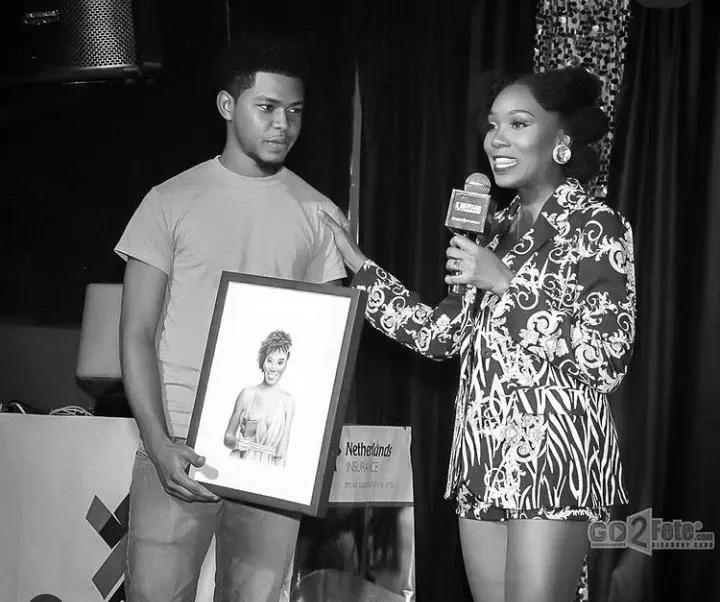
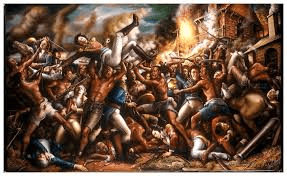
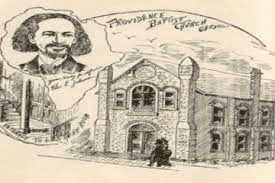
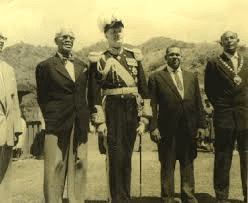
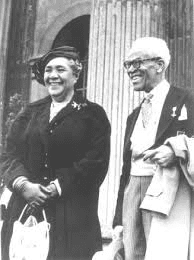
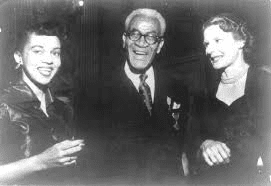
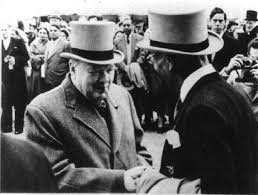

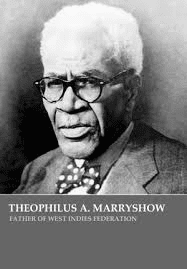
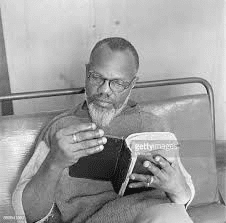
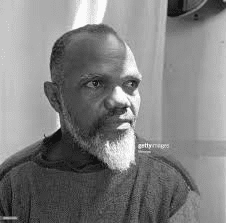
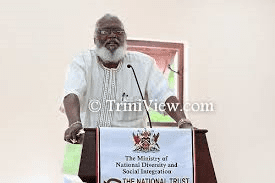
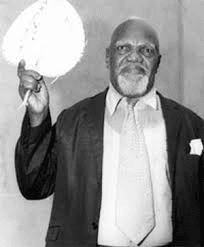

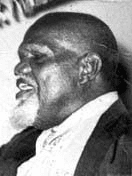
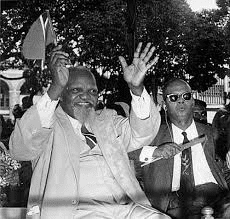
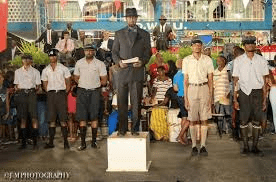
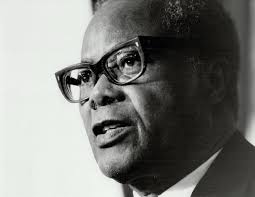
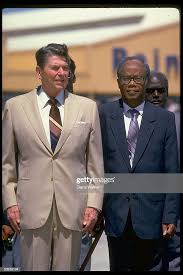
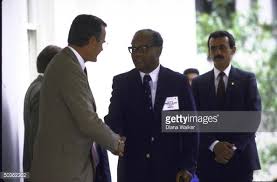
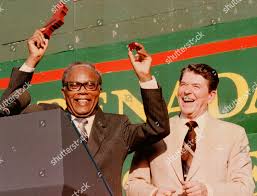

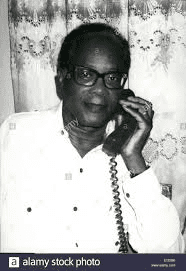
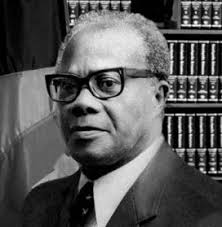
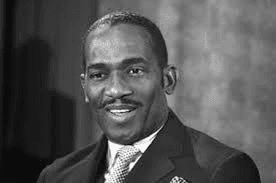
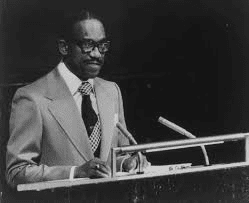


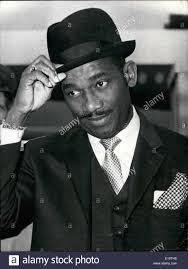


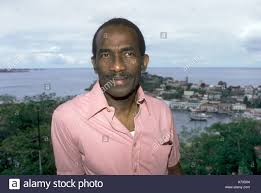
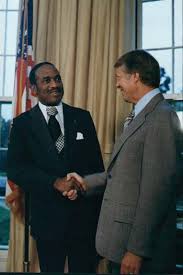



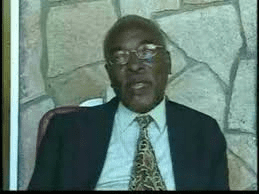
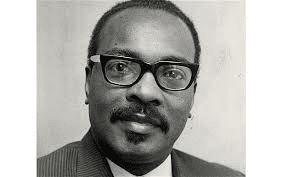
My brother suggested I may like this website. He used to be
entirely right. This post truly made my day. You can not consider simply how
a lot time I had spent for this info! Thank you!
I like it when people get together and share opinions. Great
website, keep it up!
Way cool! Some very valid points! I appreciate you penning this post and also the
rest of the website is also very good.
Feel free to surf to my page site [Cedric]
… [Trackback]
[…] Info on that Topic: iamgrenada.com/grenada-founding-fathers/ […]